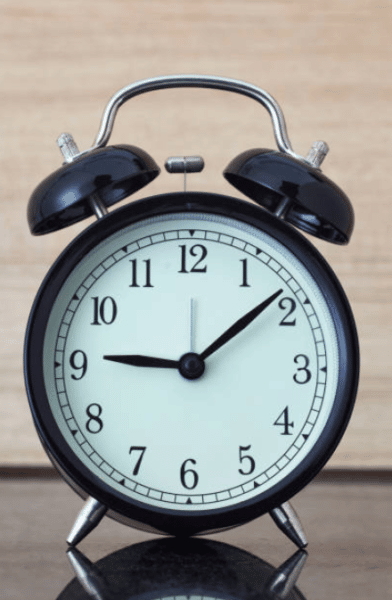Le ramadan est caractérisé par une longue période de jeûne. La pratique dure environ un mois. Il est vrai que ce n’est pas toujours facile de faire face à cette privation de nourriture et d’eau tout en maintenant le même rythme par rapport aux exercices de musculation. D’autant plus que les muscles ont besoin de protéines et de glucides pour continuer à être au meilleur de leur forme.
Durant les périodes estivales, le plus grand dilemme réside au niveau de l’impossibilité à boire de l’eau. Automatiquement, tout ce processus affecte le corps et son aspect. Les astuces suivantes permettent de limiter au maximum les dégâts que peut causer le ramadan sur vos muscles.
Sommaire
Conseil 1 : modifiez vos horaires d’entraînement
Le ramadan consiste à ne pas manger et boire dès que la première lueur du jour fait son apparition. Chaque musulman ne peut boire et manger qu’une fois le soleil complètement couché. Les horaires de musculation doivent donc s’adapter à ce rythme de vie sortant de l’ordinaire.
Déjà, il est important de réduire les efforts physiques pour ne pas sentir de gêne et de mal-être durant la journée. Généralement, le corps a besoin de se ressourcer après de longs efforts physiques. Ainsi, pour amortir la fatigue, il faut juste faire le nécessaire.
Pour cela, vous pouvez raccourcir les séries de musculation. Vous êtes donc dans une phase où l’objectif est d’entretenir les muscles pour qu’ils gardent leurs formes et leurs rigidités. Il en va de même pour les charges des haltères qui doivent être d’un poids plus réduit qu’à vos habitudes. Au lieu de faire des séances durant 1 h à 1h30, il est préférable de les limiter à 45 minutes tout au plus.

Enfin, concernant l’horaire, il serait judicieux de ne pas s’entrainer pendant la journée mais plutôt après le coucher du soleil. Vous pouvez casser le jeûne sans trop manger, de façon à ne pas être ballonné à l’entraînement, faire votre petite séance de 30 min à 45 minutes pendant laquelle boire par petites gorgées sera indispensable et après la séance manger à son aise.
Là encore, il vous faudra consommer votre nombre de calories pendant le moment où vous avez le droit de manger.
Ce qui est assez compliqué, car le fait de manger un seul repas le soir va rendre votre estomac lourd assez rapidement. Tout comme le fait de boire trop d’eau d’un coup, vous empêchera de bien manger. Il est aussi très difficile de compter le nombre de calories lorsque vous mangez des repas comme la traditionnelle soupe ou autres aliments que vous n’avez pas vous-même cuisiné. Il faut donc faire au mieux pour arriver à consommer votre apport calorique.
Conseil 2 : évitez le cardio
Durant la période de ramadan, il est préférable de ne pas faire d’exercices de cardio. En effet, lorsqu’il s’agit de cardio, il y a toujours allusion à la transpiration. Lorsque vous évitez les exercices qui vous font trop transpirer, vous perdez moins de liquide. Vous êtes donc moins déshydraté et les muscles perdent moins en volume et en consistance.
Lorsque les réserves caloriques dans le ventre sont épuisées, cela ne va pas seulement brûler les graisses mais le corps va également puiser dans celles qui sont au niveau du muscle. Il s’agit du processus de catabolisme. C’est-à-dire que le corps va utiliser les protéines qui sont présentes au niveau des muscles pour le transformer en source d’énergie.
Conseil 3 : adoptez une nouvelle habitude alimentaire
Il est important de consommer une bonne dose de protéines une fois le soleil couché. Cela permet d’arrêter le processus de catabolisme qui se poursuit à l’intérieur de votre corps. Un apport qui est plus qu’important pour ceux qui continuent d’effectuer leurs séances d’entrainement musculaire.
Tout votre corps va subir un changement. En effet, le petit déjeuner commence plus tôt que prévu. Par exemple, au lieu de manger à 6 h ou 7 h du matin, vous mangez vers 3 h ou 5 h du matin. Il est donc important de bien manger pour avoir assez d’énergie pour affronter la journée.
Au menu, il est préférable de favoriser la consommation de glucides. Comme la semoule, le riz ou le quinoa. Puis, à la place de la chorba ou du harira, vous pouvez manger de la viande blanche comme le poisson ou le poulet. Sans oublier les œufs qui ont un fort apport en protéine. Si vous êtes végétarien, vous pouvez vous satisfaire d’un joli plat de légumineuses.
Comme vous avez besoin de maintenir vos muscles en l’état, il vous faudra consommer des aliments riches en protéines.
Pour agrémenter le tout, n’oubliez pas d’utiliser des huiles riches en bon lipides. Comme l’huile d’olive, l’huile de colza et l’huile de pépins de raisin.
Durant la période de ramadan, n’hésitez pas à prendre des compléments alimentaires. Ils vous évitent une perte abondante au niveau de votre masse musculaire. Il y a des compléments qui ont la capacité d’aider à reprendre les muscles perdus après la période de jeûne du ramadan. Ce sont des compléments qui favorisent la synthèse des protéines par le corps.
Ensuite, il y a les acides aminés qui sont présents dans certaines protéines et compléments alimentaires, comme les BCAA qui ne sont pas produits par le corps. Ils sont importants pour maintenir vos muscles en bon état malgré un cycle de vie légèrement perturbé.
Enfin, il faut aussi consommer de l’oméga 3. Généralement, c’est un élément que nous retrouvons dans les produits d’origine végétale. Mais, vous pouvez en prendre sous forme de complément alimentaire. L’oméga 3 permet de limiter la perte musculaire engendrée par la période de ramadan. Il évite surtout qu’un état de carence puisse avoir des impacts sur le fonctionnement de votre système nerveux.
Conseil 4 : établissez un nouvel ordre de sommeil
Pour essayer de maintenir un minimum de cycle alimentaire, vous perdez quelques heures de sommeil. Les nuits sont plus courtes, voire entrecoupées en raison de la nécessité à se nourrir pour retrouver un maximum d’énergie. Or le sommeil est réparateur pour l’ensemble du corps, y compris pour les muscles. Il est essentiel de pouvoir donc dormir un maximum même si cela n’est pas facile.

Pour compenser ce manque de sommeil, il est préférable de prendre quelques minutes de sieste lorsque vous le pouvez. Il est prouvé que 15 minutes de répit permettent de faire redescendre la pression et de diminuer les effets de la fatigue sur le corps.
Si vous travaillez, opter pour une sieste à la pause déjeuner. Durant le ramadan, l’objectif est d’avoir au moins 6 ou 7 heures de sommeil pour que les muscles ne se dégradent pas mais en général, ce n’est pas possible.
Pour vous aider, vous pouvez prendre du ZMA et de la Glutamine et vous relaxer un maximum avant d’entamer votre nuit. Ces compléments favorisent la production d’hormone de croissance et de testostérone : Un processus important pour que vos muscles récupèrent au mieux et se développent.
Conseil 5 : consommez de la caféine
Enfin, si vous consommez du café ou des pré workout, il est conseillé d’en limiter la consommation lors de ce mois éprouvant afin de ne pas accentuer l’état de stress de votre organisme.
Sinon pour terminer, il ne faut pas diaboliser le ramadan et le jeûne qui va avec. Il est scientifiquement prouvé que seul un jeûne plus de 3 jours successifs a la capacité de perturber l’état de vos muscles. Autrement, il n’y a pas de raison pour que vos muscles puissent perdre considérablement en masse sauf si vous ne vous entraînez plus ou que vous ne mangez pas assez.
En adoptant toutes les astuces précédemment citées, vous ne risquez pas d’avoir le moindre souci en musculation. Si dans le cas contraire, vous perdriez un peu de muscle, il serait plus facile de récupérer ce manque lorsque vous aurez terminé le ramadan.
Au final, tout est question d’organisation, car si le ramadan est assez difficile les premiers jours, le corps s’habitue vite et passé ce délai, il sera plus facile à tenir.

DÉCOUVREZ TOUS MES PROGRAMMES
Téléchargez mon application MetamorphX et commencez votre transformation physique dès aujourd’hui !





